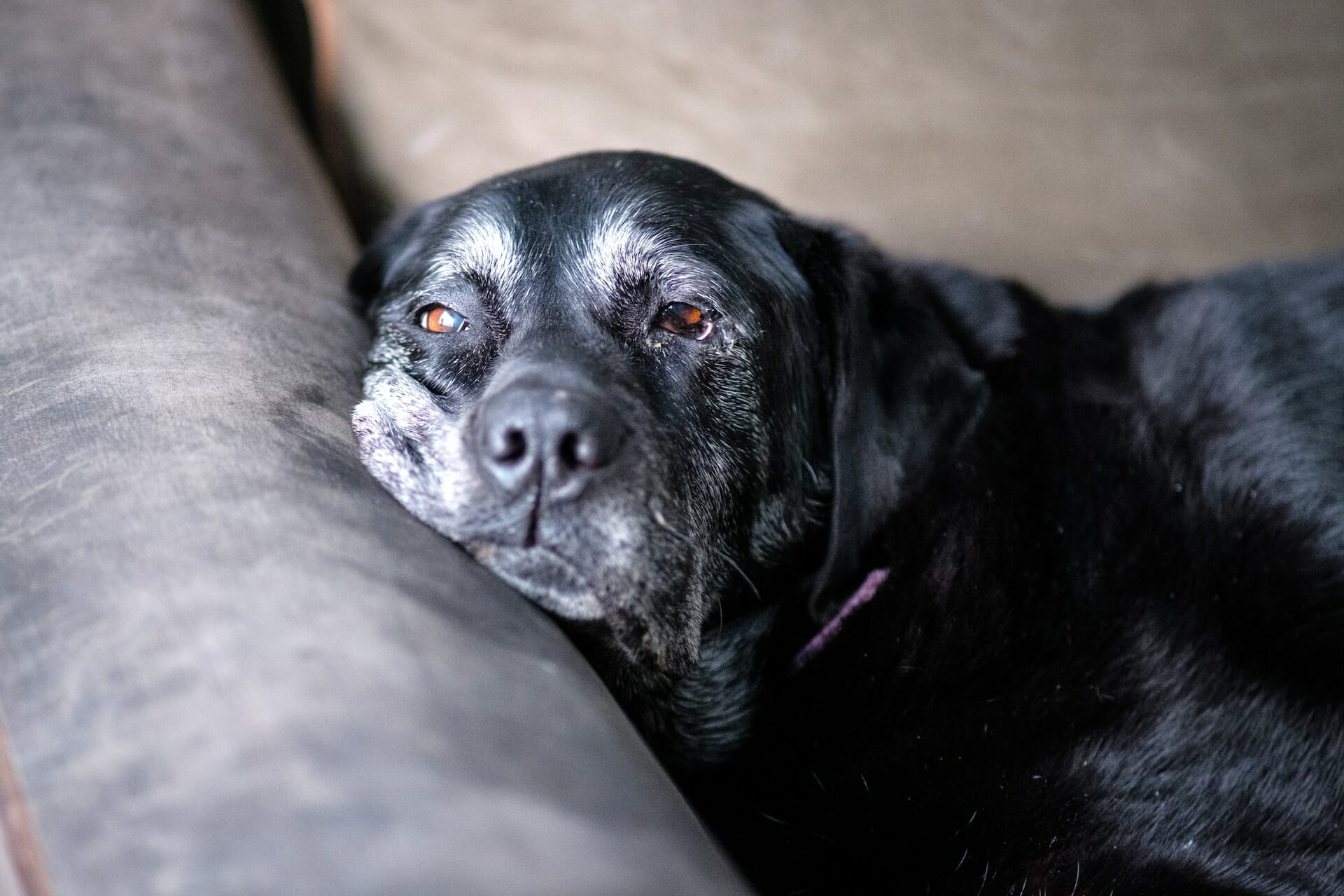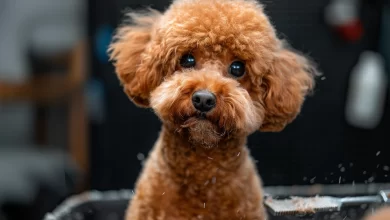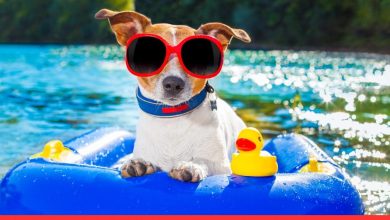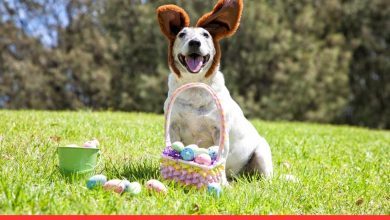Senior Dog Peeing in House: Finding a Humane Solution


We love our furry friends, but finding your senior dog peeing in the house can be frustrating. It’s a common issue with elderly pups, but don’t stress; we’ve got solutions.
As our beloved furry friends age, they may experience various health issues that can affect their daily routines and behavior. One common issue that senior dogs face is peeing in the house.
Dogs peeing in the house can be frustrating for pet owners and uncomfortable for our aging companions. But before giving up hope or turning to harsh training methods, it’s essential to understand why this may happen.

Understanding Old Dog Incontinence
Old dog incontinence is when your senior dog loses control over its bladder. It can result in your dog urinating unintentionally at random places around the house. This is not a behavioral issue but, more often, a sign of aging or underlying health conditions.
Incontinence can be a stressful issue for both dogs and their owners. It can lead to discomfort and confusion for dogs, as they’re often house-trained and understand that they should not be peeing indoors. For owners, it can lead to extra cleaning and concern for their beloved pet’s wellbeing.
Understanding this issue is the first step to managing it. It’s essential to remember that your elderly dog isn’t intentionally causing a mess but may be dealing with this uncomfortable condition. This can help you approach the situation more calmly, ultimately finding a solution that makes your senior dog comfortable.

Identifying Common Triggers
Understanding the triggers that may exacerbate incontinence in your senior dog can provide a significant advantage in managing this issue. These triggers can be various factors, from dietary influences to environmental changes.
Changes in Diet
Sudden changes in your dog’s diet may affect bladder control. Certain dog foods and treats can provoke increased urination, worsening the incontinence. With senior dogs, it’s crucial to maintain a consistent and balanced diet tailored to their age and health status.
Water Consumption
Ensuring adequate hydration for your dog is of utmost importance. It is worth noting that increased water intake may lead to more frequent urination.
You can effectively manage incontinence by monitoring your dog’s water consumption closely while ensuring their happiness and hydration. Stay informed and keep your furry friend comfortable
Environmental Stress
When it comes to environmental changes, such as relocating to a new residence or welcoming a new family member, it is crucial to consider the potential stress they may impose on your dog. Even minor adjustments, like rearranging furniture, can have an impact.
Stress has the potential to exacerbate incontinence. Hence, minimize these changes or introduce them gradually.
Cold Weather
Cold weather can sometimes make senior dogs more prone to incontinence. Like humans, the cold can trigger the need to pee more frequently. So, ensuring your furry friend has a warm place to sleep can make a difference!
Lack of Exercise
Regular exercise strengthens your furry friend’s bladder muscles, effectively reducing incontinence. Ensure your dog receives ample, gentle exercise tailored to its age and unique health condition. Let’s keep those tail-wagging moments going strong!

Health Issues That May Cause Incontinence
Common health issues prevalent among senior dogs can contribute to incontinence, leading to the troubling symptom of house soiling. From UTIs to more severe conditions like diabetes, understanding these health concerns can help you adopt effective strategies to manage incontinence in your elderly pet.
Urinary Tract Infections (UTIs)
Senior dogs often suffer from urinary tract infections (UTIs). Symptoms include increased urination and accidents indoors. These infections can also cause your dog discomfort. If you suspect a UTI, consult your vet for diagnosis and treatment.
Diabetes
Diabetes can cause incontinence in senior dogs, affecting their ability to regulate blood sugar levels. Signs include increased thirst, frequent urination, and accidents indoors. If you observe these symptoms, have your dog evaluated for diabetes by a veterinarian.
Cognitive Dysfunction Syndrome (CDS)
Like humans, older dogs may experience cognitive decline with age. Cognitive Dysfunction Syndrome (CDS) can lead to confusion, forgetfulness, and incontinence. Watch for any behavioral changes in your pooch.
Bladder Stones
Bladder stones in dogs can cause irritation and difficulty urinating. This is more common among senior dogs and can lead to indoor accidents due to increased urination and discomfort.
Kidney Disease
Kidney disease is another health issue that can significantly impact bladder control in senior dogs. As dogs age, their kidneys may not function as efficiently, leading to an imbalance in the waste-filtering process. This can result in increased thirst and frequent urination, often leading to accidents indoors.
Chronic kidney disease may also cause other dog symptoms, such as weight loss, decreased appetite, and lethargy.
Hormonal Imbalance
Hormonal imbalances can significantly contribute to incontinence in senior dogs. The two primary hormones involved in maintaining bladder control are estrogen in females and testosterone in males.
As dogs age, the production of these hormones decreases, potentially leading to weaker bladder control and frequent urination. In female dogs, this is often termed ‘spay incontinence,’ which can occur post-spay due to a sudden drop in estrogen levels.
It’s essential to consult with your veterinarian if you suspect a hormonal imbalance could be causing your senior dog’s incontinence issue. They may suggest hormone replacement therapy or other treatments to help manage the condition.
If your senior dog struggles with incontinence, it’s essential to consider these potential health issues. Always consult a vet if you’re unsure or notice any other alarming symptoms.

How to Handle Incontinence in Dogs
Managing incontinence in your senior dog can be challenging, but with some practical steps, you can make this phase of your pet’s life more comfortable. Here are some strategies:
Regular Vet Check-ups
Schedule regular vet visits to monitor your senior dog’s health. A vet can diagnose potential health issues early, preventing them from worsening into significant concerns, including incontinence.
Dietary Management
Maintain a consistent diet and avoid sudden changes. Monitor your dog’s water intake. Consult your vet about your senior dog’s appropriate meal plans and water consumption.
Frequent Bathroom Breaks
Offer your senior dog more frequent trips outside. This can reduce the chance of accidents inside and help you understand your dog’s urinating schedule.
Dog Diapers
Dog diapers can be a convenient short-term solution to manage incontinence, especially if you’re not home all day. They can prevent urine from soiling your floors or furniture.
Bladder Training
Like puppies, older dogs can benefit from bladder training, too. Regular and timed bathroom breaks and positive reinforcement can do wonders.
Comfortable Bedding
Invest in waterproof bedding for your dog’s comfort. Look for one that’s easily washable and can handle the occasional accident.
Regular Exercise
Maintain a suitable exercise routine for your senior dog. Exercise helps keep your dog’s overall and bladder muscles in good shape.

Different Dog Incontinence Products
When managing incontinence in your senior dog, various products are designed to help. Here are the top five:
- Dog Diapers
Dog diapers are an excellent choice for managing incontinence, especially for dogs who can’t go outside often. They come in disposable and washable versions, each with their own benefits.
- Potty Pads
Potty pads can be placed where your dog tends to have accidents. They’re highly absorbent and can protect your floors and carpets from stains.
- Waterproof Dog Beds
A waterproof, washable dog bed ensures your senior dog has a comfortable, relaxing place, even if an accident happens.
- Pet Stain and Odor Removers
These products are essential for cleaning up after accidents. They clear up the mess and effectively remove odors, discouraging your pet from re-soiling the same area.
- Dog Belly Bands
For male dogs, dog belly bands can be a great solution. They wrap around the dog’s waist and protect urine and your home.
In a nutshell…
In conclusion, a senior dog peeing in the house can be challenging, but remember, it’s part and parcel of pet parenthood and the aging process of your loyal companion.
While this problem can have various causes, from environmental stress to severe health conditions, numerous strategies and products are available to manage incontinence. Regular vet check-ups, dietary management, frequent bathroom breaks, bladder training, natural remedies, and incontinence products can significantly enhance the quality of life for your senior dog.
Patience, compassion, and consistency are your best friends on this journey. Your furry friend might be getting older, but the love and care you provide can help ensure these golden years are as comfortable and joyful as possible.

FAQs for Senior Dog Incontinence
As senior dogs get older, they might experience incontinence. This could happen due to weaker bladder muscles or hormonal changes.
Certain pet owners have reported positive outcomes with natural supplements like cranberry extract or pumpkin. Nevertheless, it is crucial to consult your veterinarian before attempting any new treatments.
There are several products in the market designed specifically for this. Dog diapers, potty pads, waterproof dog beds, pet stain and odor removers, and dog belly bands are among the most popular options.
Diet can play a role in managing incontinence. It’s important to consult your vet for a suitable meal plan. They might recommend dietary changes or additions like cranberry extract, which can promote urinary health.
Making your home more comfortable for your incontinent senior dog involves a few steps. Provide them with easy access to the outdoors for frequent bathroom breaks, use pet-friendly, washable throws on furniture, invest in waterproof, washable bedding, and consider placing potty pads where your dog spends the most time.
Related Post:
10+ Heartwarming Senior Dog Quotes to Melt Your Heart



